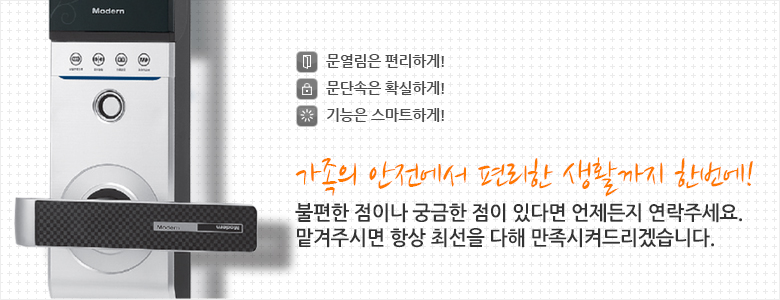This Is The One ADHD Diagnosis Trick Every Person Should Be Aware Of
페이지 정보
작성자 Elaine Hindwood 작성일25-02-22 10:31 조회4회 댓글0건본문
연락처 :
주소 :
희망 시공일 :
Getting an ADHD Diagnosis
A diagnosis of ADHD is often the first step to be done to reduce symptoms that hinder daily life. Many people are uncomfortable seeking an assessment. However, it can be an important relief.
An ADHD evaluation typically starts with a clinical interview. Experts may also use checklists with standardized criteria, and may administer screening tests for coexisting conditions such as learning disabilities or mood disorders.
Symptoms
The disorder was first documented in medical science in 1902, and has been referred to by several names, most recently attention-deficit/hyperactivity disorder with or without hyperactivity (DSM-5). adhd diagnosis adult could be caused by an imbalance of chemicals in the brain. Adults suffering from ADHD frequently have difficulty with organizational tasks and paying attention at school or at work and remembering important events. They are more prone to impulsive behaviors such as cutting lines or interrupting others, as well as ignoring rules. They may also have problems finishing projects, keeping appointments or paying their bills.
It is crucial to find a doctor who has been trained in ADHD when looking for a diagnosis. Check with local chapters of mental health organizations, a local support group, or seek an appointment from a trusted source. It is also a good idea to check with your insurance provider to see if there are providers in the network who specialize in ADHD.
 A thorough psychiatric evaluation will include a detailed patient description of their symptoms and a thorough review of the family and personal history, which includes past mental health, adhd diagnosis and therapy medical and educational issues and the completion of neuropsychological or psychoeducational tests, as well as a physical exam. The clinician will also interview others who are close to the patient, such as their spouses or partners to determine the extent to which ADHD symptoms affect their lives. Many people with ADHD have a poor memory of their childhood, and it is helpful to have parents or other relatives complete questionnaires that describe the child's symptoms.
A thorough psychiatric evaluation will include a detailed patient description of their symptoms and a thorough review of the family and personal history, which includes past mental health, adhd diagnosis and therapy medical and educational issues and the completion of neuropsychological or psychoeducational tests, as well as a physical exam. The clinician will also interview others who are close to the patient, such as their spouses or partners to determine the extent to which ADHD symptoms affect their lives. Many people with ADHD have a poor memory of their childhood, and it is helpful to have parents or other relatives complete questionnaires that describe the child's symptoms.
Adults with ADHD might have a difficult time admitting that their issues stem from their attention deficit disorder. They may be frustrated, embarrassed and ashamed about their inability to stay organized and focused at home as well as at the office. They may also think that their issues are caused by their own faults or flaws in their character. A diagnosis of ADHD could bring hope and a sense of relief for the future and help them realize that their difficulties aren't their blame.
Diagnosis
There isn't a single physical or medical test to determine ADHD (previously known as ADD) However, an experienced mental health professional will collect information about your child's or adult's symptoms from a variety of sources. These include ADHD symptom checklists as well as standardized behavior rating scales, a detailed history of both present and past functioning and information from people who know the person well.
A thorough examination could also include a psychological examination like an inventory of personality or neuropsychological testing. Additionally the health professional can examine a person's medical history, which includes present or past injuries, illnesses and the use of medications, such as those that stabilize moods, such as steroids.
It's important to recognize that other disorders and conditions may mimic the symptoms of ADHD. These include learning disabilities, anxiety disorders, mood disorders, and other medical issues such as sleep apnea, thyroid issues and head injuries. A thorough psychiatric evaluation will help determine the cause and identify effective treatment options.
An important consideration for diagnosing ADHD is whether the individual's symptoms result in significant impairments in at least two major settings - such as school and at home. This is particularly true for children and young people. These individuals may struggle to succeed at school, may have trouble keeping their jobs, and have trouble maintaining relationships and friendships with no being treated with respect.
It is essential to get an assessment from a health specialist who is specialized in working with children and adolescents. A majority of primary care physicians and mental health professionals routinely diagnose ADHD however, you should look for a specialist who can diagnosis adhd will Where how do you diagnose adhd in adults I Go To Get Diagnosed For Adhd (Ezproxy.Cityu.Edu.Hk) a thorough evaluation. During the interview the doctor will ask you about your child and your family history. They will also go over the criteria outlined by the American Psychiatric Association for diagnosing ADHD in the Diagnostic and Statistical Manual of Mental Disorders Fifth Edition.
Treatment
There are a variety of psychiatric disorders that may mimic ADHD in adults as well as children. A thorough psychiatric evaluation is essential to rule out any other illnesses. These include mood disorders, anxiety disorders as well as learning disabilities, head injuries thyroid disorders, and use of drugs. These other explanations can have a significant impact on the quality of life.
A comprehensive mental health assessment consists of an interview with the person being evaluated, as well as checklists and questionnaires completed by others in their life. This can include parents, spouses and siblings, as well as teachers for children; co-workers as well as therapists, friends and coworkers for adults. Personal insight can reveal information that cannot be gleaned from questions or checklists. It also assists the clinician to understand the ways in which ADHD symptoms have affected a person's relationships with others.
In addition to reviewing symptoms, the psychologist or psychiatrist will also review the medical history of the patient. A physical exam is usually conducted as well, which may include hearing and vision tests. An electroencephalograph or EEG scan, which measures brain waves and can help identify the presence of ADHD, is available in some offices.
Some patients opt to participate in a clinical study to see if the new medication they are taking will improve their symptoms. Participants must be aware that the main goal of a clinical study is to learn new information, not treat a particular condition.
Based on the results of the evaluation The doctor will then suggest treatment options that could include psychotherapy, medications or other interventions. In certain instances it is recommended to combine treatments. is the most efficient. Medication can alleviate some of the symptoms and is generally safe for children and adults. Other interventions that can be effective include behavioral therapy, lifestyle changes and parenting strategies.
Medication
For some, medication can reduce symptoms of ADHD and enhance their ability to perform. It can be difficult how to get adhd diagnosis uk adults find the most effective dosage and medication and it can take some time to adjust to the side effects. It is important to talk to your doctor if feel sleepy or drowsy after taking certain medications.
Psychiatrists might prescribe stimulants to reduce symptoms of ADHD. These medications increase the levels in the brain of certain neurotransmitters. They can also prescribe non-stimulant medication, which can enhance impulsivity and attention however they are not as efficient as stimulants. They can prescribe mood stabilisers or antidepressants for those suffering from depression, as well as other disorders that may be present alongside ADHD.
Psychotherapy, family therapy and educational or training programmes for adults and children are additional treatments that can benefit those suffering from ADHD. These treatments can help people learn strategies and skills to cope with the symptoms and improve their performance at home and school.
In some instances a mental or medical health professional may be able to identify ADHD in children by reviewing their school records and discussing the child's behavior with the child's teachers and caregivers. They'll likely interview the child, conduct psychological tests, and test to see if there are any learning disabilities or other conditions that have similar symptoms.
For a child to be diagnosed with ADHD it is necessary to show at least six of the nine symptoms listed in the Diagnostic and Statistical Manual of Mental Disorders (DSM-IV TR) and the symptoms must be significantly affecting adaptive functioning at home and in the classroom. They must also not be caused by any other medical condition.
Counseling
If you require treatment or medication management for ADHD it is essential to find a certified professional who is experienced in treating the disorder. Your primary care physician can make a recommendation or direct you to specialists in your region. Some professionals specializing in ADHD also offer online telemedicine making appointments simple and convenient. Many insurance companies let you make these appointments through their system.
For children doctors and specialists who specialize in ADHD can diagnose the disorder by discussing the symptoms in depth with teachers and parents, observing the child or an adolescent in various settings, interviewing family members and conducting an assessment for learning disabilities. They also look over school records and questionnaires filled out by teachers and caregivers. The adult or adolescent must to show at minimum five of the following symptoms to be diagnosed:
A thorough medical history is essential in order to diagnose ADHD. Because adults often have poor or blurry memories of childhood, therapists might seek information from independent sources, such as spouses or other family members. They should also look for other possible causes for ADHD-like symptoms, such as brain injuries, developmental disorders or other health issues.
In the initial consultation, the expert should evaluate the way in which the person deals with the symptoms of ADHD and assess the impact of these symptoms on their daily lives. They should also discuss prior ADHD evaluations or treatments. It is also helpful to look for other conditions that exhibit similar symptoms, [Redirect-302] such as depression and anxiety. When the evaluation of an individual and their mental health condition, a professional should also be listening to the person with openness and without judgement. This is especially important if there is an history of depression or addiction to drugs.
주소 :
희망 시공일 :
Getting an ADHD Diagnosis
A diagnosis of ADHD is often the first step to be done to reduce symptoms that hinder daily life. Many people are uncomfortable seeking an assessment. However, it can be an important relief.
An ADHD evaluation typically starts with a clinical interview. Experts may also use checklists with standardized criteria, and may administer screening tests for coexisting conditions such as learning disabilities or mood disorders.
Symptoms
The disorder was first documented in medical science in 1902, and has been referred to by several names, most recently attention-deficit/hyperactivity disorder with or without hyperactivity (DSM-5). adhd diagnosis adult could be caused by an imbalance of chemicals in the brain. Adults suffering from ADHD frequently have difficulty with organizational tasks and paying attention at school or at work and remembering important events. They are more prone to impulsive behaviors such as cutting lines or interrupting others, as well as ignoring rules. They may also have problems finishing projects, keeping appointments or paying their bills.
It is crucial to find a doctor who has been trained in ADHD when looking for a diagnosis. Check with local chapters of mental health organizations, a local support group, or seek an appointment from a trusted source. It is also a good idea to check with your insurance provider to see if there are providers in the network who specialize in ADHD.
 A thorough psychiatric evaluation will include a detailed patient description of their symptoms and a thorough review of the family and personal history, which includes past mental health, adhd diagnosis and therapy medical and educational issues and the completion of neuropsychological or psychoeducational tests, as well as a physical exam. The clinician will also interview others who are close to the patient, such as their spouses or partners to determine the extent to which ADHD symptoms affect their lives. Many people with ADHD have a poor memory of their childhood, and it is helpful to have parents or other relatives complete questionnaires that describe the child's symptoms.
A thorough psychiatric evaluation will include a detailed patient description of their symptoms and a thorough review of the family and personal history, which includes past mental health, adhd diagnosis and therapy medical and educational issues and the completion of neuropsychological or psychoeducational tests, as well as a physical exam. The clinician will also interview others who are close to the patient, such as their spouses or partners to determine the extent to which ADHD symptoms affect their lives. Many people with ADHD have a poor memory of their childhood, and it is helpful to have parents or other relatives complete questionnaires that describe the child's symptoms.Adults with ADHD might have a difficult time admitting that their issues stem from their attention deficit disorder. They may be frustrated, embarrassed and ashamed about their inability to stay organized and focused at home as well as at the office. They may also think that their issues are caused by their own faults or flaws in their character. A diagnosis of ADHD could bring hope and a sense of relief for the future and help them realize that their difficulties aren't their blame.
Diagnosis
There isn't a single physical or medical test to determine ADHD (previously known as ADD) However, an experienced mental health professional will collect information about your child's or adult's symptoms from a variety of sources. These include ADHD symptom checklists as well as standardized behavior rating scales, a detailed history of both present and past functioning and information from people who know the person well.
A thorough examination could also include a psychological examination like an inventory of personality or neuropsychological testing. Additionally the health professional can examine a person's medical history, which includes present or past injuries, illnesses and the use of medications, such as those that stabilize moods, such as steroids.
It's important to recognize that other disorders and conditions may mimic the symptoms of ADHD. These include learning disabilities, anxiety disorders, mood disorders, and other medical issues such as sleep apnea, thyroid issues and head injuries. A thorough psychiatric evaluation will help determine the cause and identify effective treatment options.
An important consideration for diagnosing ADHD is whether the individual's symptoms result in significant impairments in at least two major settings - such as school and at home. This is particularly true for children and young people. These individuals may struggle to succeed at school, may have trouble keeping their jobs, and have trouble maintaining relationships and friendships with no being treated with respect.
It is essential to get an assessment from a health specialist who is specialized in working with children and adolescents. A majority of primary care physicians and mental health professionals routinely diagnose ADHD however, you should look for a specialist who can diagnosis adhd will Where how do you diagnose adhd in adults I Go To Get Diagnosed For Adhd (Ezproxy.Cityu.Edu.Hk) a thorough evaluation. During the interview the doctor will ask you about your child and your family history. They will also go over the criteria outlined by the American Psychiatric Association for diagnosing ADHD in the Diagnostic and Statistical Manual of Mental Disorders Fifth Edition.
Treatment
There are a variety of psychiatric disorders that may mimic ADHD in adults as well as children. A thorough psychiatric evaluation is essential to rule out any other illnesses. These include mood disorders, anxiety disorders as well as learning disabilities, head injuries thyroid disorders, and use of drugs. These other explanations can have a significant impact on the quality of life.
A comprehensive mental health assessment consists of an interview with the person being evaluated, as well as checklists and questionnaires completed by others in their life. This can include parents, spouses and siblings, as well as teachers for children; co-workers as well as therapists, friends and coworkers for adults. Personal insight can reveal information that cannot be gleaned from questions or checklists. It also assists the clinician to understand the ways in which ADHD symptoms have affected a person's relationships with others.
In addition to reviewing symptoms, the psychologist or psychiatrist will also review the medical history of the patient. A physical exam is usually conducted as well, which may include hearing and vision tests. An electroencephalograph or EEG scan, which measures brain waves and can help identify the presence of ADHD, is available in some offices.
Some patients opt to participate in a clinical study to see if the new medication they are taking will improve their symptoms. Participants must be aware that the main goal of a clinical study is to learn new information, not treat a particular condition.
Based on the results of the evaluation The doctor will then suggest treatment options that could include psychotherapy, medications or other interventions. In certain instances it is recommended to combine treatments. is the most efficient. Medication can alleviate some of the symptoms and is generally safe for children and adults. Other interventions that can be effective include behavioral therapy, lifestyle changes and parenting strategies.
Medication
For some, medication can reduce symptoms of ADHD and enhance their ability to perform. It can be difficult how to get adhd diagnosis uk adults find the most effective dosage and medication and it can take some time to adjust to the side effects. It is important to talk to your doctor if feel sleepy or drowsy after taking certain medications.
Psychiatrists might prescribe stimulants to reduce symptoms of ADHD. These medications increase the levels in the brain of certain neurotransmitters. They can also prescribe non-stimulant medication, which can enhance impulsivity and attention however they are not as efficient as stimulants. They can prescribe mood stabilisers or antidepressants for those suffering from depression, as well as other disorders that may be present alongside ADHD.
Psychotherapy, family therapy and educational or training programmes for adults and children are additional treatments that can benefit those suffering from ADHD. These treatments can help people learn strategies and skills to cope with the symptoms and improve their performance at home and school.
In some instances a mental or medical health professional may be able to identify ADHD in children by reviewing their school records and discussing the child's behavior with the child's teachers and caregivers. They'll likely interview the child, conduct psychological tests, and test to see if there are any learning disabilities or other conditions that have similar symptoms.
For a child to be diagnosed with ADHD it is necessary to show at least six of the nine symptoms listed in the Diagnostic and Statistical Manual of Mental Disorders (DSM-IV TR) and the symptoms must be significantly affecting adaptive functioning at home and in the classroom. They must also not be caused by any other medical condition.
Counseling
If you require treatment or medication management for ADHD it is essential to find a certified professional who is experienced in treating the disorder. Your primary care physician can make a recommendation or direct you to specialists in your region. Some professionals specializing in ADHD also offer online telemedicine making appointments simple and convenient. Many insurance companies let you make these appointments through their system.
For children doctors and specialists who specialize in ADHD can diagnose the disorder by discussing the symptoms in depth with teachers and parents, observing the child or an adolescent in various settings, interviewing family members and conducting an assessment for learning disabilities. They also look over school records and questionnaires filled out by teachers and caregivers. The adult or adolescent must to show at minimum five of the following symptoms to be diagnosed:
A thorough medical history is essential in order to diagnose ADHD. Because adults often have poor or blurry memories of childhood, therapists might seek information from independent sources, such as spouses or other family members. They should also look for other possible causes for ADHD-like symptoms, such as brain injuries, developmental disorders or other health issues.
In the initial consultation, the expert should evaluate the way in which the person deals with the symptoms of ADHD and assess the impact of these symptoms on their daily lives. They should also discuss prior ADHD evaluations or treatments. It is also helpful to look for other conditions that exhibit similar symptoms, [Redirect-302] such as depression and anxiety. When the evaluation of an individual and their mental health condition, a professional should also be listening to the person with openness and without judgement. This is especially important if there is an history of depression or addiction to drugs.
댓글목록
등록된 댓글이 없습니다.





